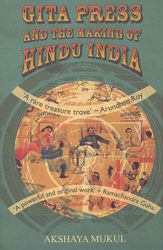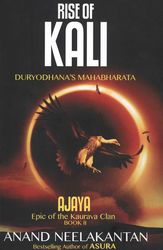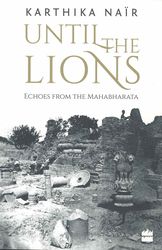
There would be few Indians who have not grown up hearing stories from the Ramayan and the Mahabharat. From his looks to his qualities, Ram is described in detail in the Ramayan. It also tells the story of how Ravan kidnapped Sita and was eventually killed, ending with the moral of good winning over evil. In the Mahabharat, the Pandavas represent dharma, the Kauravas the evil. The Mahabharat, too, essentially is about the victory of good over evil. The stories have been written many times, in many languages. But they have never been identical, with the subjective element providing variations. Lately though, the mythologies have been reimagined and reinterpreted. In fact, almost rewritten.

Anand Neelakantan's new offering is the second volume of his ‘Ajaya’ epic of the Kaurava clan. Titled Rise of the Kali: Duryodhana's Mahabharata, it is the Mahabharat story told from a different perspective, that of the eldest Kaurava. It begins where the first volume, Roll of the Dice, ends—immediately after Draupadi's disrobing. And, the journey to the end of the epic battle is largely through the lives of Duryodhana, his friend Karna, his uncle Shakuni, his mother Gandhari and everyone else who sided with him in the fight against the Pandavas. The postwar conversation has Gandhari counter Krishna on a skewed idea of what dharma—duty—is. And therein Neelakantan modernises his version of the epic. In his first book, Asura: Tale of the Vanquished, the author looks at the Ramayan through the eyes and experiences of Ravan, and not of Ram. At one of his book launches, he has confessed to finding the flawed antiheroes more like human beings, rather than the ‘perfect’ Ram.

Another interpretation of the Mahabharat comes from Karthika Nair. Brilliant and extraordinarily original from start to finish, Until the Lions: Echoes from the Mahabharata is the telling of the epic in the voices of 19 female characters, nameless and unknown. That is why, the name of the book is inspired by the saying that until the lions have their own historians, the history of the hunt will always glorify the hunter. So, she has given Vidura's mother a name—Poorna; she never had a name in any version of the Mahabharat. And few people know the names of the hundred brothers who are generally clubbed together as the Kauravas. Everyone knows each of the Pandavas though. Written in verse and rhyme, Unitl the Lions, through the words and imagery, is at once powerful and sensuous, passionate and dramatic.
Though it has nothing to do with the epics as such, it will not be out of place to include Akshaya Mukul's book Gita Press and the Making of Hindu India, in this review of books around mythologies. It is about a press in Gorakhpur, Uttar Pradesh, which has published millions of copies of Gita—which is, in essence, the story of the Mahabharat—apart from the Puranas and the Upanishads. The book is a read, not for its mythological content, but because there is hardly any. But the author's research shows how the Gita Press played a role in the formation of a Hindu political consciousness, and, in a way, shaped the worldview of Hindus.






